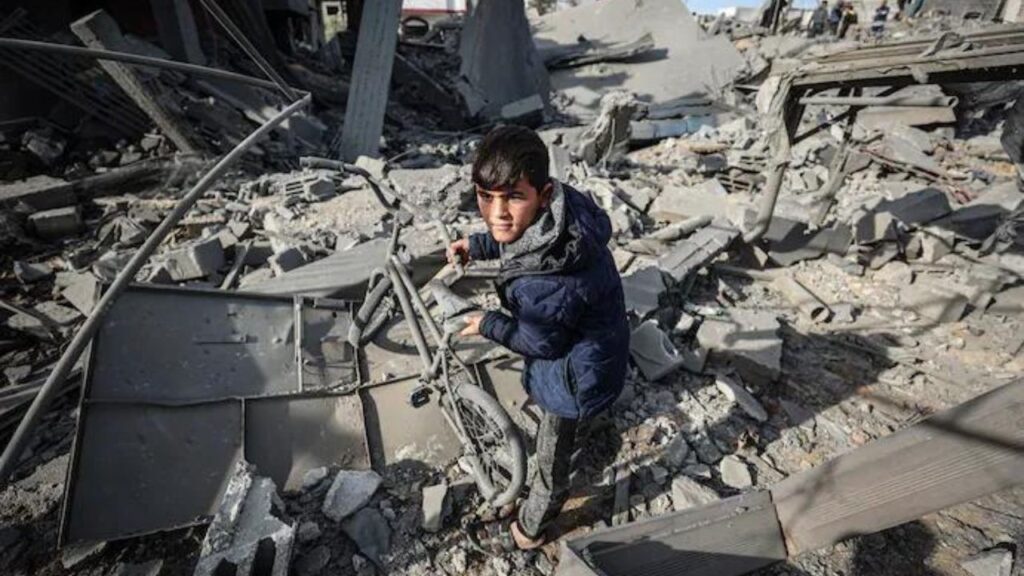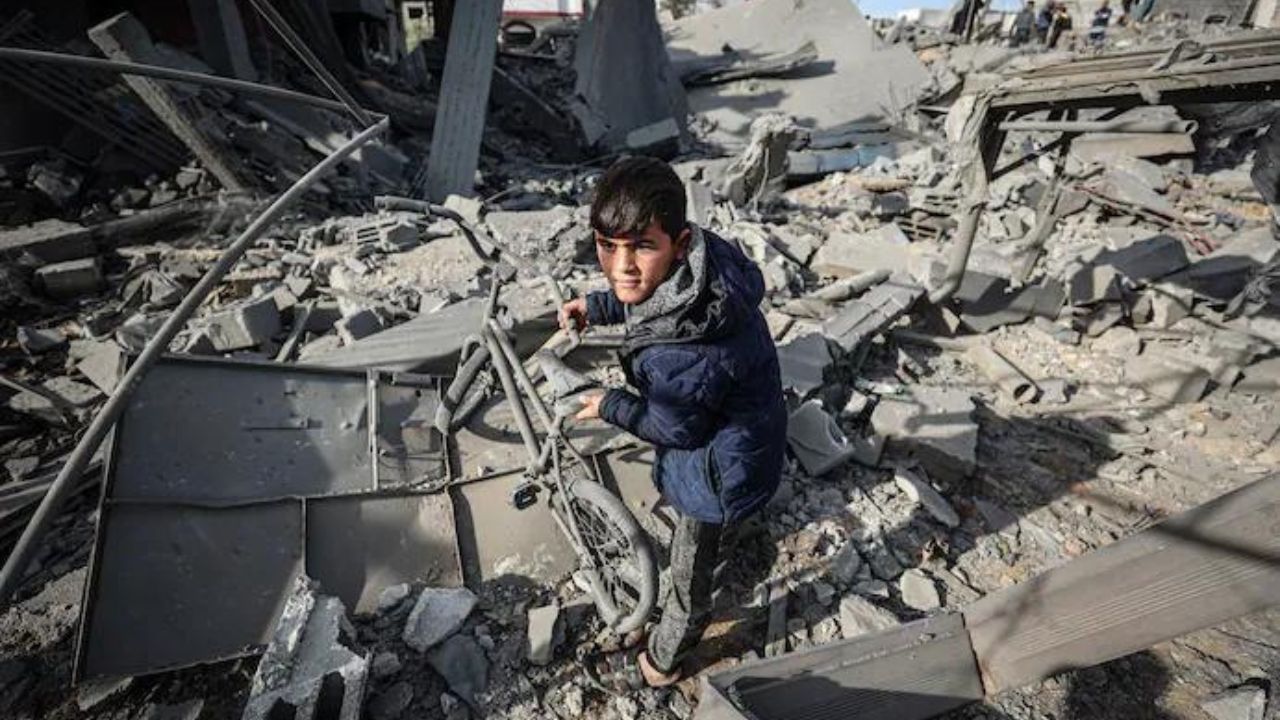Jerusalem — The 1.4 million Palestinians who now consider that strip of territory to be a last resort for protection felt shivers of anxiety when Israeli strikes lighted up the night in Gaza’s southern city of Rafah on Monday.
The bombings during the night were characterized by the Israeli army as a pretext for a special forces mission to free two elderly Israeli-Argentine hostages. Following a successful operation, Fernando Simon Merman, 60, and Luis Har, 70, were set free. The human cost was enormous: The Gaza Health Ministry reported that there were at least 74 fatalities in the entire city.
The body of a Palestinian girl with her legs torn into shreds of flesh was shown on camera from a house in Rafah; other footage from the city showed four more children lying lifeless on hospital stretchers and a bleeding youngster being taken away.

The health ministry reports that in the last 24 hours, 184 people have died and 200 more have been injured throughout the Gaza Strip. After months of attempting to avoid the bombs, the bone-tired populace of Rafah, which has been mostly spared from the massive aerial bombardment in other parts of the enclave, was taken aback by the nighttime operation.
In Rafah, families of Palestinians are crammed into homes and tents; other recent newcomers are sleeping on the streets. As aid organizations warn of an impending famine, they are virtually totally dependent on humanitarian aid. They are also cut off from loved ones in other parts of the Strip due to spotty cellular service and a lack of electricity for most phones.
Mirvat, 51, who was uprooted from Gaza City and is now residing in a tent with her sister’s family in Rafah, stated, “We are tired and cannot bear any more of this torture.” “At this point, all I want is for the war to end.”
She went on, “I don’t know where to go,” reflecting a common sentiment in Gaza. “There is nowhere safe to go.” She only talked if someone called her by her first name for security purposes.
The head of the United Nations, António Guterres, stated on social media that the impending Israeli campaign “would exponentially increase what is already a humanitarian nightmare,” pointing out that half of Gaza’s population currently lives in Rafah.
When terrorists led by Hamas invaded Israeli border communities from Gaza on October 7, 1,200 people were killed and 253 were taken captive, marking the start of the conflict. According to the Gaza Health Ministry, Israel’s military campaign of retaliation has claimed the lives of over 28,000 Palestinians, and airstrikes have destroyed much of the Gaza Strip. According to Israeli officials, the bodies of some thirty people who were slain on October 7 or died while in captivity are being held by Hamas.
While Hamas’s top leaders are still at free, the Israel Defense Forces claim that at least 9,000 militants have been slain to date. Along with the more than 100 captives who are still held captive, Israeli police suspect they are taking refuge in Rafah.
Israeli authorities contend that they cannot defeat Hamas without pursuing the organization into Rafah. This idea has worried the United States, Israel’s strongest friend, which still supplies the nation with armaments and diplomatic backing.
After Biden and Netanyahu spoke Sunday for the first time in more than three weeks, a U.S. administration official said the American position on Rafah had been made “very clear.” The United States would not support such an operation unless Israel has a plan for civilian protection and sustenance “that was actually planned, prepared and implementable,” they said, speaking on the condition of anonymity in line with White House rules.
The president of the United States may not have known that hours later there would be a large-scale operation to free the two hostages. Rear Admiral Daniel Hagari, an IDF spokesman, stated during a press conference that the mission had been planned “for some time.”
Even though the bombardment was short-lived, Monday’s effects could still be felt in the homes and tents where residents who were contacted by phone reported having little sleep. They had to make difficult choices about where to go once more.

